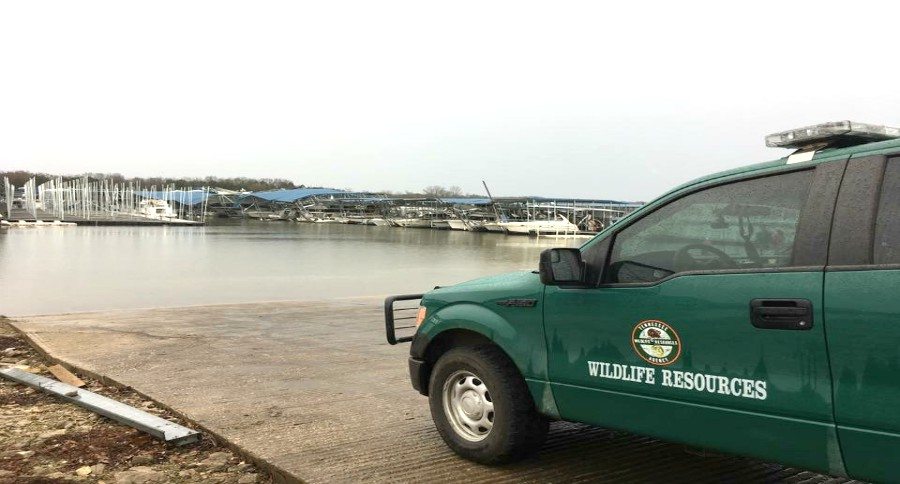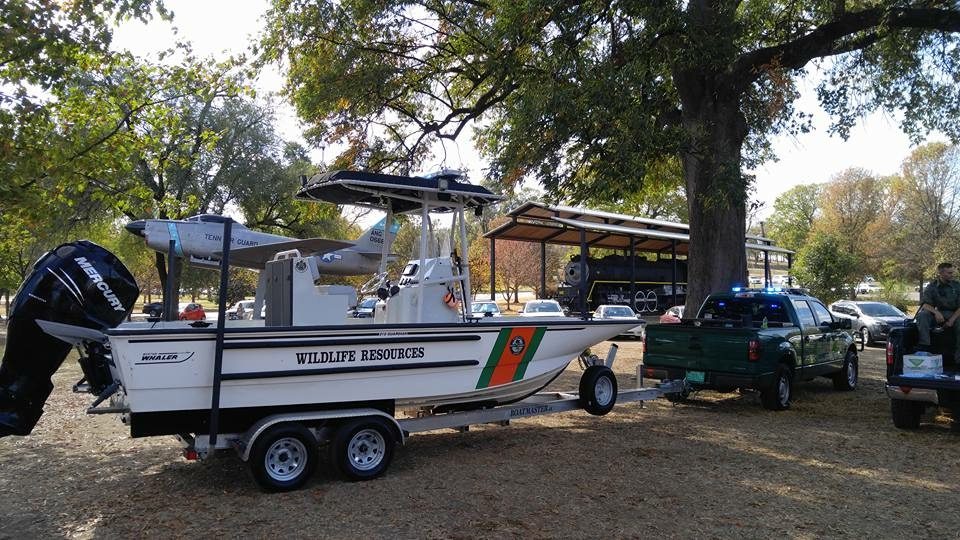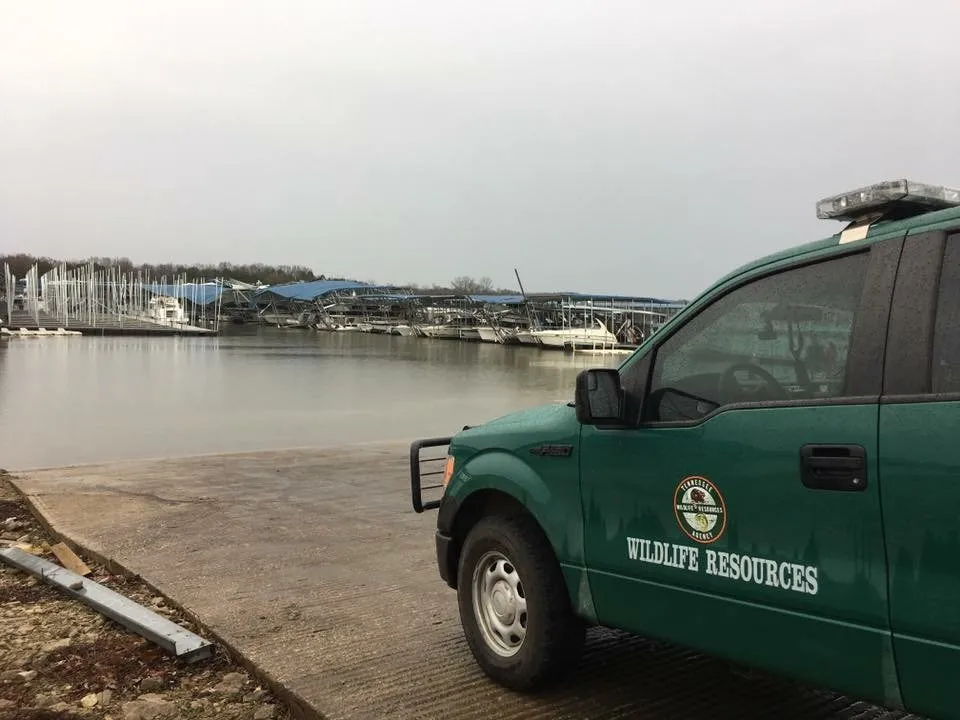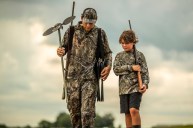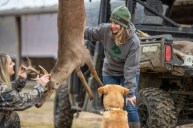We chat with three Tennessee Game Wardens to see what it's like to do one of the most intriguing jobs in conservation on a day-to-day basis.
"Game Warden." A term that often scares many hunters and anglers when spoken. A term all of us outdoorsman know very well, but do we know what they actually do on a day-to-day basis and what their job entails? Conservation obviously plays a huge role in the sports we all love, and these officers are a key component in all the work that gets done so we can continue to enjoy the outdoors. And that we are beyond thankful for.
A few wildlife officers from the great state of Tennessee took some time out of their busy schedules to sit down and let us in on what it is like to have a day in their shoes and what comes along with being a game warden. It is a very sought-after position, which requires at least a 4-year college degree. They hire once each year for about 5-10 positions. Each round, they usually receive about 300-500 applications.
The three men were Eric Anderson, Wildlife Officer, who started in 2004; Tanner Romsdal, Wildlife Officer who started in 2014; and Jonathon Lee, Wildlife Sergeant, who has been working within the department for 10 years.
So, here's what we talked about!
What does a work week look like for you guys, and what does it entail?
Eric Anderson: Everyday is really completely different as a wildlife officer and game warden. It is very fluid and busy, but no day is ever the same which is a part we all love. Boating and fishing enforcements keep us busy in the summer months.
We are either investigating boating accidents, checking fisheries and regulated bodies of water, or monitoring and putting on youth fishing events. We will help coordinate and set up the event in the morning by helping with the kids and meals, and then head to the water to help once the event kicks off.
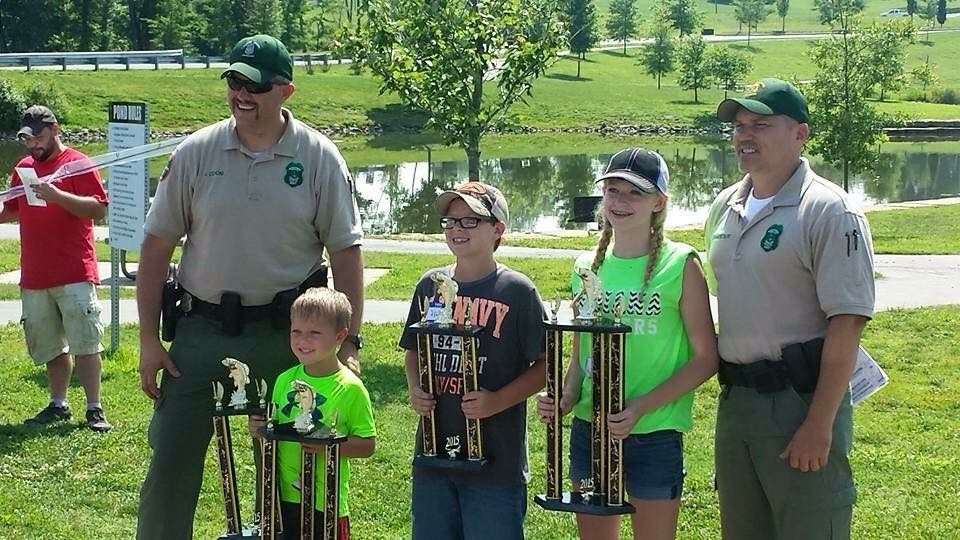
Hunting season comes and brings its own busy seasons as well. Enforcing any and all hunting laws and checking for baiting violations and stuff of that nature.
As an avid outdoorsman, I always wondered, do you have trouble finding time to hunt on your own? That was always my fear of being a wildgame officer.
Eric Anderson: It can be difficult. Opening days of any seasons and all weekends are pretty much guaranteed off limits because that is when the most hunters are out and we are expected to be on duty. I still try to find as much time as possible.
Often times, you will still find yourself working while hunting. Either have to respond to a call or catch trespassers or lawbreakers in the moment while you are out.
We still find the time to get our own time, but it can be very difficult.
What is your favorite aspect of your job?
Tanner: One of my favorite aspects would have to be the low downs you get on what is going on in the wild and the field updates during each season. From being on duty and seeing it or hearing it from locals, we always know if the fish are biting, what baits are working, if the rut is in full swing, and where the hot spots are at.
Also, sometimes, landowners have pest problems with turkeys and whatnot. Rather than letting someone they don't trust come on to their property, they will call us and allow us to hunt to help control the problem. Building relationships like that is always neat.
What is your least favorite aspect of the job?
In my mind, I had a few answers that I kind of expected them to give. As soon I asked this question, they didn't hesitate to answer it, and they all agreed 100%. I found that very interesting, and it gave me a whole new level of respect for them. It wasn't what I expected the answer to be, but after hearing it, it was clear that it would be a very difficult part of any job.
Eric: Death notifications. Absolutely, no doubt about it. Anytime we deal with the death of a person, it makes the day a tough one. We are dealing with real people and families, and it is tough to witness.
Boating accidents as well, it is always stressful job. It requires us to have the trust of our fellow officers lean on one another a lot to get the job done.
What do you feel led you to pursue your role as a Game Warden?
Eric, Tanner, and Jonathon all agreed that their love for the outdoors was the main component. And doing their part on helping keep the rich outdoor traditions and conservation efforts headed in the right direction.
Eric mentioned a specific experience that really inspired him.
When I was young hunting with my family, we had a game warden check us. I just remembered having a great experience as a kid and thinking he was so cool because of what he was doing. The positive influence really inspired me to pursue a career in this field, and it ultimately keeps me motivated to do well, that way I can hopefully inspire other hunters and kids.
What are some programs and conservation efforts going on in Tennessee that you guys are focusing on right now?
Tanner: Farm game has been and is a struggle right now. Especially species like quail and rabbit. With technology advances and clean farming, there just seems to be less habitat for species like that. And predators play a huge role in that as well. So we are always trying to improve that by improving habitat for example.
And the wild hog population as well. A lot of efforts are devoted in keeping their growing populations via agencies. So that is a problem we are facing.
Do you feel as if poaching has become a bigger issue in last few years in Tennessee or does social media play a big part in making people feel like that?
Eric: I am not sure there is more poaching, but poaching itself has definitely changed. We are seeing many more cases within city limits these days instead of rural areas. These trophy animals and big bucks feel safe in these areas, and guys are doing anything in their power to kill and poach them.
With people taking land management more serious, there seems to be more quality bucks which in turn makes these cases more prevalent.
What do you guys feel is the biggest challenge with being a wildgame officer?
Eric, Tanner, Jonathon: Most definitely would be the work/family balance. We are all subject to call 24/7 and it can be literally any day of the week. We are there to serve, so if something comes up, we are expected to be there. Many times that can mean leaving a peaceful night at home while at the dinner table.
We love our work, but we love our families more, so that makes it tough.
Do you feel that the public can view you as the bad guy sometimes?
For the most part, I feel the view on us is all positive. You always have a few that don't like you, or a handful who have ran into some bad situations that they then form an opinion on. But, we work hard to leave a positive experience with everyone we run into.
Often stay in touch with people after I have wrote them for citations. We build a relationship and they are able to ask questions and touch base if they ever need to.
So, definitely more on the positive side for sure.
So...
Now you have a better idea of what it looks like to be a wildgame officer on a day to day basis in the rich hunting and fishing state of Tennessee. A very rewarding yet challenging job for sure, and one that I personally have a ton of respect for. And probably more respect after speaking with these three gentleman.
It is not an easy job dealing with the public, and if you have a negative mindset towards game wardens, I encourage you to think about what they have to do. Conservation should be something that any outdoorsman cares deeply about, and thanks to individuals like Eric, Tanner, and Jonathon, they keep our states in line and on task, so we can continue enjoying the great outdoors.
NEXT: BUCK DECOY GETS PUT UP AND ILLEGALLY SHOT WITHIN 5 MINUTES
https://rumble.com/embed/u7gve.v3tohd/
